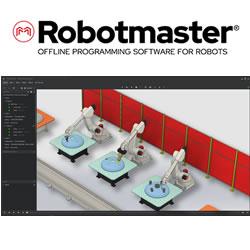MOUNTING BRACKET TURNS SHAFT ENCODERS INTO LINEAR MEASUREMENT SOLUTION
New Mounting Bracket Fits Size 25 Programmable and Absolute Shaft Encoders
SAGLE, Idaho: Encoder Products Company (EPC) has introduced a new linear measurement solution: a bracket that fits all of EPCs Size 25 Shaft Encoders with 2.5" flange mounts, including absolute and programmable encoders.
The bracket works with:
• The Model MA63S absolute encoder. With resolution up to 14 bits Single Turn and 39 bits Multi-Turn, the MA63S is available in either SSI or CANopen output.
• The Model 725I. In addition to the rated bearing load of 80 lbs, this fully isolated encoder-within-an-encoder uses an internal flexible mount and independent set of bearings to protect the encoder from the effects of severe axial and radial shaft loading.
• The programmable Model 25SP Accu-CoderPro™, which offers programmable output type, waveform, and resolution.
"This is a fantastic option when applications call for a robust linear measurement solution that requires absolute feedback or a programmable encoder," explains Sarah Walter, Electrical Engineer and EPC Technical Sales Manager. "It solves the problem of trying to design and source or assemble a bracket, measuring wheel, and encoder. With this new bracket, you just order it with the Size 25 encoder and the measuring wheel you need for your application. Its one streamlined system."
EPC also offers a variety of measuring wheels designed specifically to fit the mounting bracket.
About Encoder Products Company:
Encoder Products Company (EPC) is a leading designer and world-wide manufacturer of motion sensing devices. EPC began operations in 1969, producing a line of custom encoders from a small, home-based shop. Today, EPC is the largest privately-held encoder manufacturer in North America, producing a complete line of incremental and absolute rotary encoders and accessories.
For more information visit http://encoder.com/
Featured Product

Robotmaster 2024
Program multi-robot cells and automatically solve robotic errors with ease. Hypertherm Associates announces a new version to its robotic programming software. Robotmaster 2024 addresses key market trends including the support for programming multiple robots in a single work cell and the demand for automatic trajectory optimization and robotic error correction.
